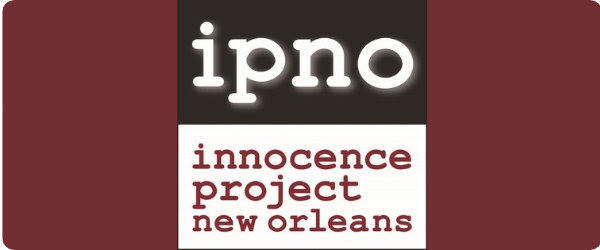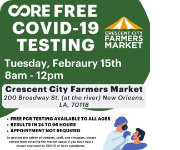Seed Saving, History, & Sovereignty | February 21, 2022 |
FRESH & LOCAL:Seed Saving, History, & SovereigntyThe legacy of slavery in Louisiana is deeply embedded in our local food system, and while we celebrate and support the work of small farmers, ranchers, fishers and other food suppliers, we as an organization think it is also important to recognize and bring awareness to the harm that agriculture has caused and continues to cause to communities of color. Although slavery was abolished with the 13th Amendment in 1865, Jim Crow laws designed by white southern law makers were put in place to undermine and limit the freedom of newly emancipated people. When these laws were broken, Black men, women, and children were sometimes “leased” to private businesses, including plantations, a system which became known as “convict leasing''. Although it was eventually banned in 1898, this system incentivized the mass incarceration of Black people in the South to create a supply of cheap or free agricultural labor which still continues today. In 1901, the state of Louisiana purchased 8,000 acres of land, which was formerly Angola plantation (named after the country where enslaved Africans were stolen from). Today, Angola continues to use the labor of incarcerated people to farm over 18,000 acres of cotton, corn, soybeans, and vegetables that are sold to neighboring communities. Incarcerated people at Angola are only paid a few cents an hour. With 75% of incarcerated people at Angola being Black and 70% facing life in prison, “Angola is essentially a place where slavery never ended.” It is important in our work as food system organizers and local food advocates that we acknowledge the harm that agriculture has had and continues to have on Black communities in the South. We encourage our community to educate themselves about the history of agriculture in this region and to donate to organizations like the Innocence Project who work directly with incarcerated people facing wrongful convictions and on prison reform. |
PICKS OF THE WEEK:BHM Book List: CookbooksAs we continue to celebrate Black History Month we want to further celebrate the contributions of Black chefs and their cooking. This list showcases cookbooks ranging from the first cookbook penned by an African-American woman in the U.S. to modern cookbooks exploring the intersection of black history, music, and food. |
|
Seed Saving, History, & SovereigntySeed saving is the practice of intentionally selecting and saving seeds to be used from year to year. In many ways seed saving is a means of preserving food culture, and serves as the bridge between the overlooked past and a regenerative future. Okra, purple hull peas, and fish pepper are just a few of the crops we know and love today that hold a rich history of seed saving and exchanging, and represent important food traditions associated with the African diaspora. Seed libraries function as a form of food sovereignty and allow us to preserve seed systems and the culture they hold. Read further about the history and importance of seed saving here. |
Free COVID Testing Now Available at the Tuesday Uptown MarketCORE offers free COVID testing weekly right next to the Tuesday CCFM at 200 Broadway St. Tests are available to people of all ages, with no insurance or appointment required. To protect the safety of vendors, staff, and shoppers, please refrain from entering the market space if you have had a known exposure to COVID or have symptoms. |
Calling all musicians!Are you a musician interested in performing at the Crescent City Farmers Market? We are looking for acoustic bands of one to three musicians to perform at one of our three markets! Thanks to funding from the Threadhead Cultural Foundation, we are excited to announce Music at Market-- a monthly series of safe, outdoor performances at each of our market locations. You can apply to perform on our website, and be on the lookout for the Music at Market lineup for March, soon to be announced! |
VENDOR OF THE WEEK:Kirby JonesKirby Jones, a former vendor with the markets’ Green Plate Special, is excited to join the Crescent City Farmers Market as a full time vendor at the Tuesday Uptown Market serving up Creole coffee cold brew blends, freshly roasted coffee beans, and her special king cakes. What started out as a bike cafe popup at Martin’s Wine Cellar has bloomed into a flourishing business for the mother of two. With deep roots in New Orleans Creole culture dating back to the 1800s, Kirby first fell in love with coffee when her grandmother, who lived across the street from the sugarcane fields in Lutcher, LA, handed her a cup of coffee and bunny bread to dip in it. Now, Kirby is slated to open up the newest addition of La Vie En Rose in the CBD on February 14th, 2022. You can find her at the Tuesday Market starting in March. |
RECIPES OF THE WEEK:Curry Roasted Brussel Sprouts |
KING CAKE OF THE WEEK:King Cake Offerings by La Vie En RoseAmong the highly anticipated items on offer from La Vie en Rose Cafe are the Don Creole (Crawfish King Cake) and Rose Queen Cake. The Don Creole, is a savory delight with a filling as rich as the beautiful city of New Orleans, which it is an homage to. It’s filled with robust ingredients including crawfish, cheese, herbs, seasonings and spices. Whereas the Rose Queen cake is infused with signature Rose Cane Syrup providing a decadent and floral flavor which could satisfy all sweet tooths. |
MARKETS THIS WEEK:SUNDAY CITY PARK TUESDAY UPTOWN |




























